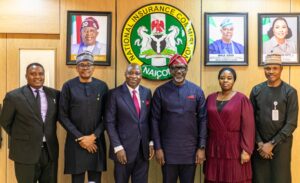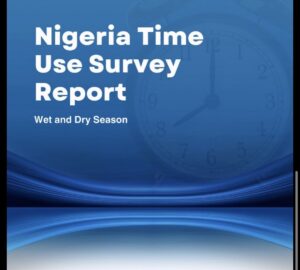The National Industrial Relations Policy: Matters arising

Ivor Takor
Ivo Takor, mni
By Vice Chairman/Chairman, Human Rights Committee,
Nigerian Bar Association (NBA), Epe Branch.
While briefing State House correspondents following the Federal Executive Council (FEC) meeting held on Thursday, July 31, 2025, and presided over by President Bola Ahmed Tinubu, the Honourable Minister of Information and National Orientation, Mohammed Idris, announced that the Federal Government has approved the National Industrial Relations Policy (NIRP) 2025.
According to the Minister, the primary objective of the NIRP 2025 is to mitigate the incidence of industrial actions by providing a comprehensive regulatory framework for the conduct of trade unions. He stated that the policy is designed to facilitate uninterrupted workflow, foster effective social dialogue, and promote tripartite cooperation among the government, employers, and workers.
The Minister further emphasized that the adoption of the NIRP 2025 reflects Nigeria’s commitment to aligning its industrial relations practices with international labour standards, particularly those established by the International Labour Organization (ILO), and underscores the government’s recognition of industrial relations as a national priority requiring immediate and sustained attention.
The following day, August 1, 2025 the Nigeria Labour Congress (NLC) issued a Press Release, stating that it considers the statement by the Federal Government that the newly adopted National Industrial Relations Policy is aimed at stopping frequent industrial actions, particularly strikes by trade unions, as very reprehensible.
The press release further stated that the Labour Centre is shocked that from a catalogue of hundreds of workplace issues contained in the National Industrial Relations Policy, the Federal Government singled out industrial strikes as its headache.
The NLC also stated that the unfortunate press statement exposes the mindset of those who were elected to protect the interests of ordinary citizens, including workers.
“We recall that there were attempts during the development of the National Industrial Relations Policy to insert certain clauses in the policy that criminalized strike actions. It stated that the trade unions, the employers and even the representatives of the Federal Ministry of Labour rejected such insertion as anomalous to the 1999 Constitution and the Trade Unions Act, which give trade unions the power to withdraw their services in line with the law”, NLC stated in the press release.
I served as a Member of the International Labour Organization (ILO) Committee of Experts responsible for the review of Nigeria’s labour laws. As part of this mandate, the Committee developed a draft Industrial Relations Policy for the country.
While I will not be addressing the specific work of the Committee or the subsequent tripartite social dialogue process that examined the draft policy, I intend to focus on explaining the concept and framework of the National Industrial Relations system. National Industrial Relations refers to the system of rules, institutions, and practices governing employment relationships within a specific country, as recognised and supported by the ILO.
The ILO is a specialised agency of the United Nations, promotes rights at work, encourages decent employment opportunities, enhances social protection, and strengthens dialogue on work-related issues. The ILO does not dictate national policies, but it sets international labour standards through Conventions and Recommendations, and encourages countries to implement them in their national systems.
Key ILO Conventions relevant to industrial relations, which Nigeria has ratified and therefore binding on her includes: Freedom of Association and Protection of the Right to Organise Convention (No. 87); Right to Organise and Collective Bargaining Convention (No. 98); Labour Relations (Public Service) Convention (No.151); and Collective Bargaining Convention (No. 154)
The ILO supports countries by advising on legal reforms, providing technical assistance, supporting labour law compliance and promoting freedom of association and effective dispute resolution.
Industrial relations concern the relationships between employers, employees, trade unions and government. It includes: collective bargaining, workers’ rights and employer responsibilities, conflict resolution (strikes, disputes), labour laws and enforcement mechanisms. All these combine to form a country’s National Industrial Relations Systems.
Each country’s system may differ, but typically includes: Labour Laws, that governs hiring, firing, wages, working hours, and dispute resolutions; Institutions such as labour courts, industrial tribunals, and the Ministry of Labour; Social dialogue, which is a forum for negotiations between employers, unions, and governments; Collective bargaining mechanisms and grievance and disputes resolution procedures.
Despite the existence of formal legal frameworks and active trade unions, Nigeria’s industrial relations system continues to face significant and persistent challenges. A summary of the key issues is outlined below.
Industrial actions, particularly strikes, are prevalent across key sectors such as education, healthcare, and oil and gas. Despite being a key stakeholder in labour relations, the government has consistently failed to honour Collective Bargaining Agreements (CBAs) and other contractual or negotiated obligations freely entered into with trade unions. This breach of contract undermines the principles of good faith and mutual respect that are foundational to effective labour relations.
Although Nigeria has enacted various labour laws and constitutional provisions to safeguard employee rights, such as the Labour Act (2004), the Pension Reform Act (2014), and provisions relating to minimum wage, enforcement remains inconsistent and largely ineffective. Public sector employers, including federal and state governments (who are the largest employers), frequently contravene these laws without facing legal or administrative sanctions.
The mechanisms for tripartite dialogue involving government, employers, and workers are largely ad hoc, reactive, and lack institutional continuity. Further exacerbating the situation is the government’s frequent contravention of labour laws and constitutional provisions, particularly those concerning workers’ rights and welfare.
These violations not only weaken the rule of law but also erode trust between the state and organized labour, fueling industrial disharmony and labour disputes.
Compounding these structural issues are broader macroeconomic challenges. Government policies including increased prices of fuel and electricity have contributed to widespread poverty, rising inflation, currency depreciation, and an escalating cost of living. These economic pressures have intensified demands for wage increases and better working conditions, often resulting in industrial unrest.
In summary, the failure to institutionalize collective bargaining, uphold legal commitments, and stabilize the macroeconomic environment presents a profound threat to industrial peace, socio-economic development, and the realization of decent work in the country.
Given the magnitude and persistence of the challenges confronting national industrial relations in Nigeria, ranging from the non-implementation of Collective Bargaining Agreements, violations of labour and constitutional provisions, to the absence of institutionalised social dialogue and adverse macroeconomic conditions, one would have reasonably expected the Honourable Minister of Information and National Orientation, in announcing the approval of the National Industrial Relations Policy (NIRP), 2025 by the Federal Executive Council, to articulate clearly how the Policy intends to address these deep-rooted and multifaceted issues.
Rather than merely emphasizing the Policy’s role in checking strike actions and regulating trade union activities, the announcement ought to have provided insight into how NIRP, 2025 will ensure government compliance with its labour obligations, strengthen institutional mechanisms for dialogue, and promote industrial peace through lawful and equitable engagement with social partners.
Moreover, the timing and manner of the announcement, coming at a period when nurses and midwives are engaged in an industrial action, with other health sector unions threatening to embark on similar actions further reinforce the concerns raised by the Nigeria Labour Congress (NLC) in its recent press release.
The approach lends credence to fears that the Policy may be more focused on control rather than reform, and on containment rather than genuine engagement. For the NIRP, 2025 to gain legitimacy and achieve its stated objectives, it must be seen to address the underlying causes of industrial unrest, not merely the symptoms.




